#liberation run
Text

Delightful Liberation
#artists on tumblr#painting#procreate#clip studio paint#raccoon#opossum#liberating#trash cat#trash panda#running#ocs#brandy#ginger#zoom in#to see hidden details
6K notes
·
View notes
Text
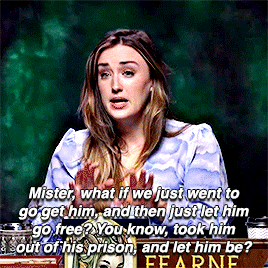
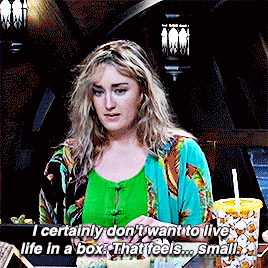



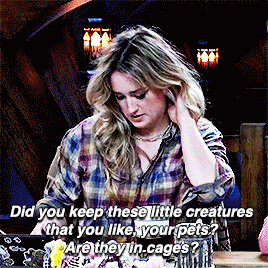
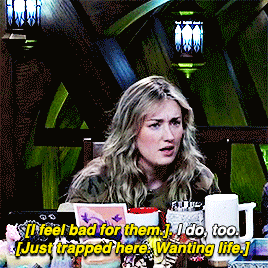
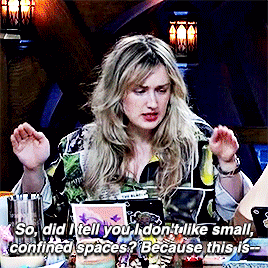
Did she keep you trapped?
#critical role#ygifs#fearne#cr3#the way fearne Immediately needs to liberate trapped creatures with a desperation that makes my heart ache :) comedy?? nah Trauma :)#a lonely little girl growing up in a nightmare and her heart is so big she only sees the dream#and she grows up believing with all her love that her parents Love her. her nana Loves her. and they'll be together one day.#and then it's growing up realizing just how dark the shadows were around her but no her home was always lovely it has to be#and it's not their fault if something hurts. if anything it's hers right. shes the solution for them of course she was the problem after al#the nana she loves can't be the hag who took her for a prize the parents she's searching for can't have left her behind.#her home was never a cage she just Has to free every trapped creature she sees#she'll laugh lightly and often and shrug it all away because it's not heavy. it doesn't hurt her. she's fine. she's fearne.#love nana morri to death also a thousand percent sure she modified little fearne's memory A Ton to keep her :).#how times did fearne try to run away crying only to be given a grin and a postcard and those fears are just one more thing taken from her#and it's all so lovely and nothing hurts and she's totally fine#my galpaloway
872 notes
·
View notes
Text
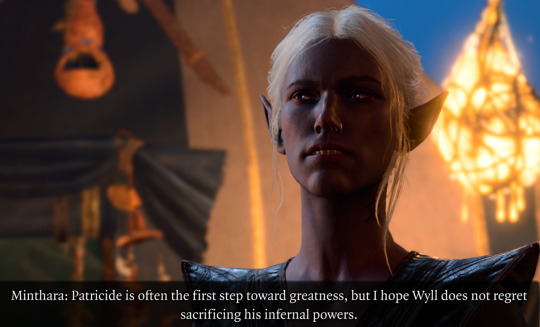
at the end of the day i can always count on her to be real
#when i get my evil run in. we will have a spring wedding#bg3#bg3 spoilers#they sent the dark urge to liberal arts college
230 notes
·
View notes
Text
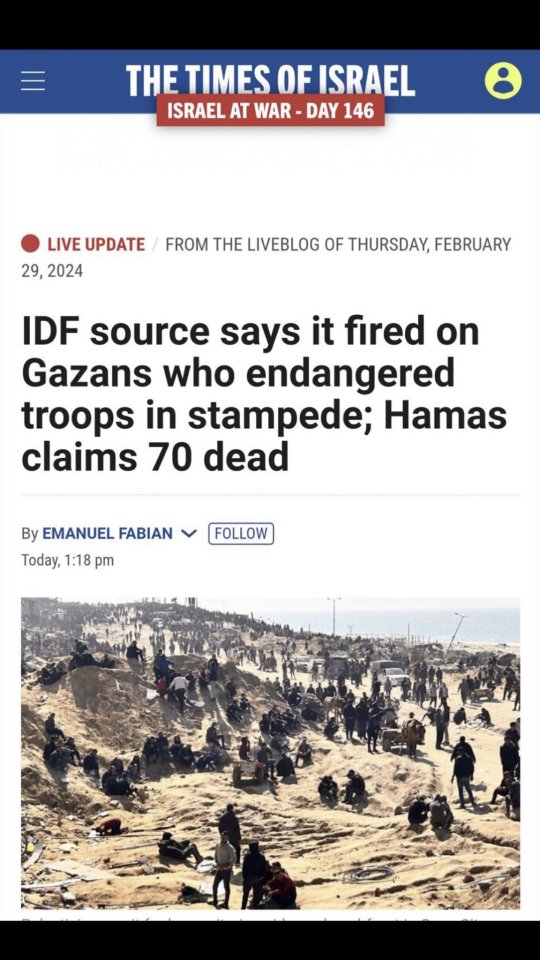
This is literally what the evil dystopian government in the opening of The Running Man does.
“Fuck you, I won’t fire on hungry civilians!”
And Arnold Schwarzenegger is presented fully as a hero for opposing it.
#Stephen king#books#free palestine#arnold schwarzenegger#Sci fi#science fiction#hollywood#the running man#liberals#democrats#republicans#politics
169 notes
·
View notes
Text
There’s something that has always struck me as ironic about discussions of, like, undeserved indigenous land and sovereignty in the same context as criticisms of colonial systems of property and ownership, in that the vocabulary being used fundamentally grants the premises of the system being critiqued. And it makes me wonder, in the long run, if this is the fate of a global civilization—trending gradually toward a political, material, even maybe a linguistic monoculture, on a level too fundamental to even really consciously resist, all while being dissatisfied about it but not actually being able to shape the incentives around it. Or even while loudly proclaiming that’s not what we’re doing, managing to give lip service to only the most superficial differences.
#I don’t think this is a dystopian fate or anything#just maybe an inevitable hypocrisy#like how everybody wants the benefits of a liberal secular democratic society#without having to run a liberal secular democratic society#everybody wants the benefits of participating in the emerging global monoculture#without succumbing to it#and I’m not sure that’s possible
136 notes
·
View notes
Text
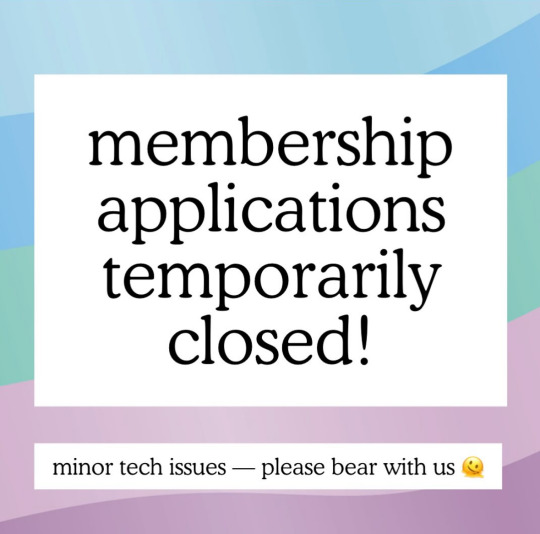
working on it! we’ll let you know when they’re back open 💖
#queer liberation library#qll#eight friends in a trenchcoat running a little gay library together#and doing our best!!
143 notes
·
View notes
Text

✦ Currant cream ;
Scrapped rentry graphics. Free to use with credit, okay to resize / edit as needed.
Pt: Currant cream: scrapped rentry graphics. Free to use with credit, okay to resize/edit as needed /Pt end





#✦ two shots and i need more#✦ liberating rain . . . ( blurry )#currant cream cookie#cookie run#cookie run ovenbreak#rentry graphics#rentry inspo#rentry resources#rentry decor#rentry gif#rentry stuff#bundlrs#sntry graphics#sntry decor#sntry resources#graphics
54 notes
·
View notes
Photo
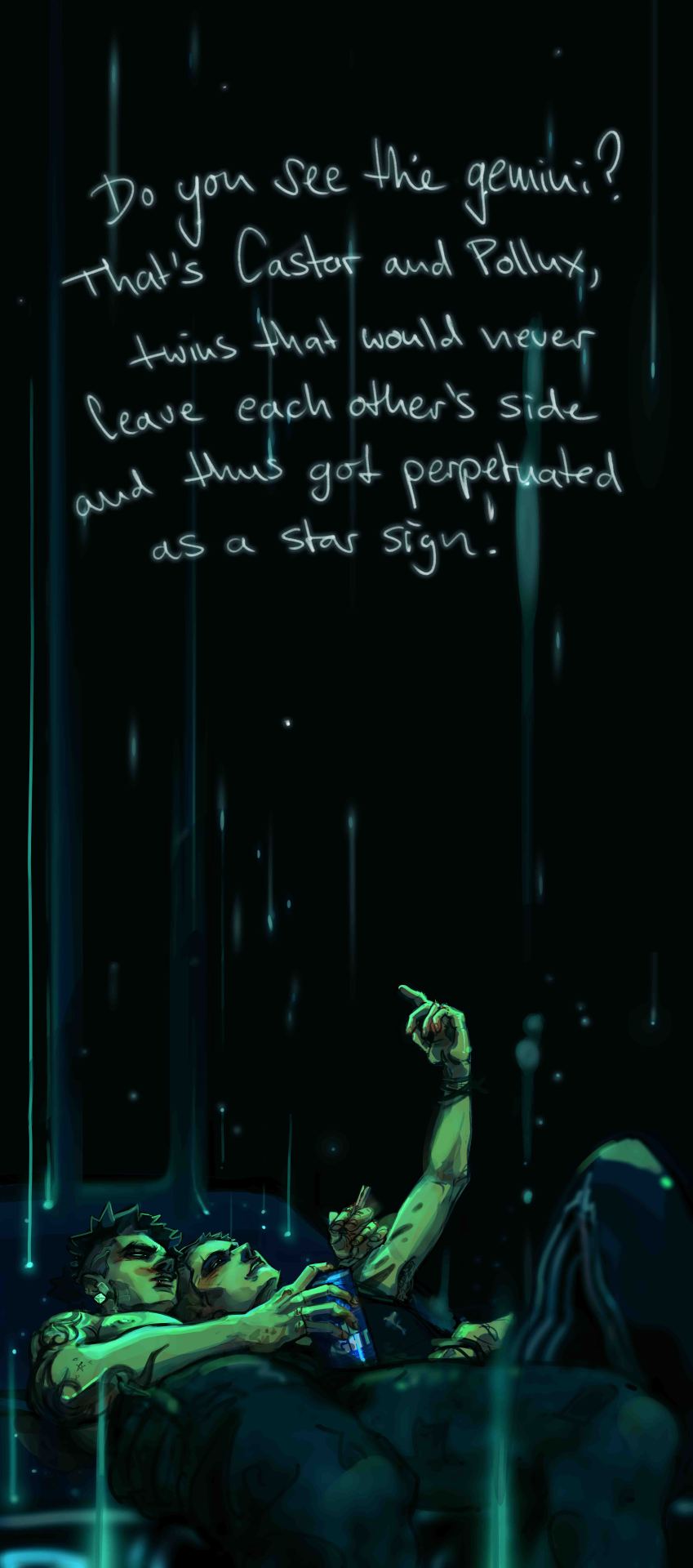
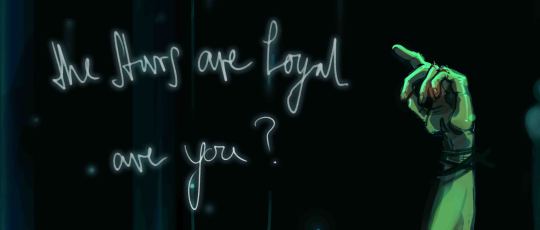
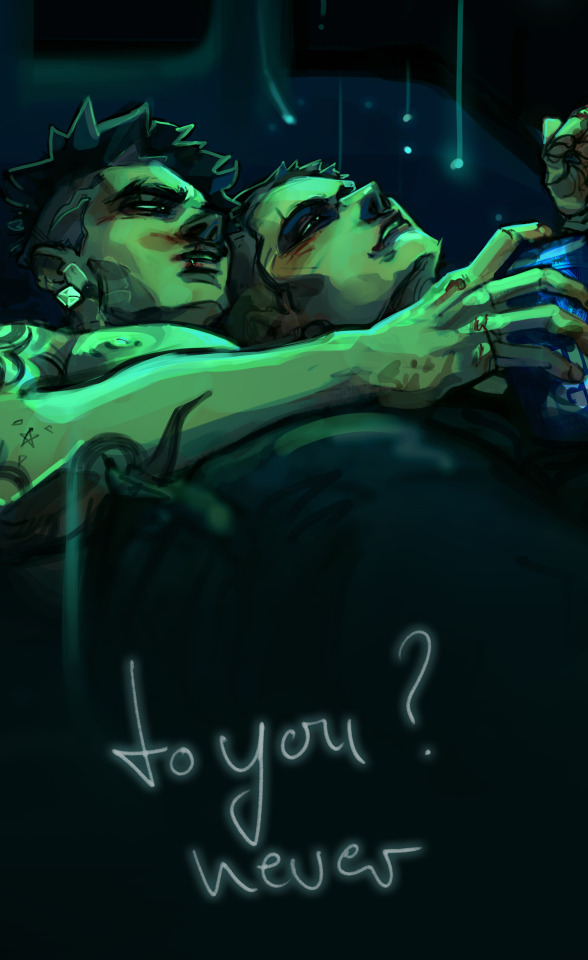
Oh to believe in the beauty of the stars or to believe in the beauty of a human being.
Which one would be more devastating?
-
commission <3
#rovinsky#ronan lynch#ronan x kavinsky#joseph kavinsky#trc#the dream thieves#one of the most fun comms yet tbh bestie was so patient and SO LIBERAL#i could really run free with this <3#mine#commisionwork
349 notes
·
View notes
Text

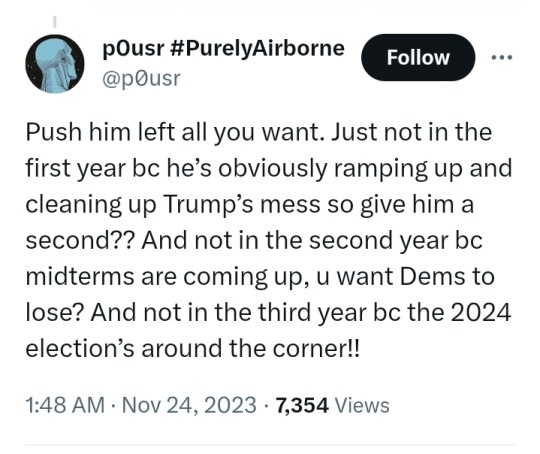
#you never had any intention of pushing the Dems left#you just don't want your lives upset by having to stand in solidarity with the people already losing everything under them#add one more and one more and one more to the number of people run over by the democratic trolley#until it's just you left#and you don't get to pull the lever anymore#martin niemöller who?#twitter#vote blue no matter who#genocide joe#fuck joe biden#shit liberals say#white supremacy#white queers#us politics#knee of huss#gaza genocide#free palestine
70 notes
·
View notes
Text
started reading the cass review because i'm apparently just Like That and i want everybody crowing about how this proves sooooo much about how terfs are right and trans people are wrong to like. take a scientific literacy class or something. or even just read the occasional study besides the one you're currently trying to prove a point with. not even necessarily pro-trans studies just learn how to know what studies actually found as opposed to what people trying to spoonfeed you an agenda claim they found.
to use just one infuriating example:
Several studies from that period (Green et al., 1987; Zucker, 1985) suggested that in a minority (approximately 15%) of pre-pubertal children presenting with gender incongruence, this persisted into adulthood. The majority of these children became same-sex attracted, cisgender adults. These early studies were criticised on the basis that not all the children had a formal diagnosis of gender incongruence or gender dysphoria, but a review of the literature (Ristori & Steensma, 2016) noted that later studies (Drummond et al., 2008; Steensma & Cohen-Kettenis, 2015; Wallien et al., 2008) also found persistence rates of 10-33% in cohorts who had met formal diagnostic criteria at initial assessment, and had longer follow-up periods.
if you recognize the names Zucker and Steensma you are probably already going feral but tldr:
There are… many problems with Zucker's studies, "not all children had a formal diagnosis" is so far down the list this is literally the first i've heard of it. The closest i usually hear is the old DSM criteria for gender identity disorder was totally different from the current DSM criteria for gender dysphoria and/or how most people currently define "transgender"; notably it did not require the patient to identify as a different gender and overall better fits what we currently call "gender-non-comforming". Whether the kids had a formal diagnosis of "maybe trans, maybe just has different hobbies than expected, but either way their parents want them back in their neat little societal boxes" is absolutely not the main issue.
This would be a problem even if Zucker was pro-trans (spoiler: He Is Not, and people who are immediately suspicious of pro-trans studies because "they're probably funded by big pharma or someone else who profits from transitioning" should apply at least a little of that suspicion to the guy who made a living running a conversion clinic); sometimes "formal" criteria change as we learn more about what's common, what's uncommon, what's uncommon but irrelevant, etc, and when the criteria changes drastically enough it doesn't make sense to pretend the old studies perfectly apply to the new criteria. If you found a study defining "sex" specifically and exclusively as penetration with a dick which says gay men have as much sex as straight men but lesbians don't, it's not necessarily wrong as far as it goes but if THAT'S your prime citation for "gay men have more sex than lesbians", especially if you keep trying to apply it in contexts which obviously use a broader definition, there are gonna be a lot of people disagreeing with you and it won't be because they're stubbornly unscientific.
Also Zucker is pro conversion therapy. Yes, pro converting trans people to cis people, but also pro converting gay people to straight people. That doesn't necessarily affect his results, i just find it funny how many people enthusiastically support his findings as evidence transitioning is… basically anti-gay conversion therapy? (even though plenty of trans people transition to gay? including T4T people so even the "that's actually just how straight people try to get with gay people" rationale for gay trans people is incredibly weak? and also HRT has a relatively low but non-zero chance of changing sexual orientation so it wouldn't even be reliable as a means of "becoming straight"? but a guy who couldn't reliably tell the difference between a tomboy and a trans boy figured out the former is more common than the latter + in one whole country where being trans is legal but being gay is not, sometimes cis gay people transition, so OBVIOUSLY that means sexism and homophobia are the driving factors even in countries with significant transphobia. or something.) anyway i hope zucker knows and hates how many gay people and allies are using his own study to trash-talk any attempts to be Less Gay. ideally nobody would take his nonsense seriously at all but it doesn't seem we'll be spared from that any time soon so i will take my schadenfreude where i can.
Steensma's studies have the exact same problem re: irrelevant criteria so "well someone ELSE had the same results!" is not exactly convincing. This is not "oh trans people are refusing to pay attention to these studies because they disagree with them regardless of scientific rigor", it's "one biased guy using outdated criteria found exactly the numbers everyone would expect based on that criteria, i can't imagine why trans people are treating those numbers as relevant to the past criteria but not present definitions, let's find a SECOND guy using outdated criteria. Why do people keep saying the outdated criteria is not relevant to the current state of trans healthcare. Don't we all know it's quantity over quality with scientific studies. (Please don't ask what the quantity of studies disagreeing with me is.)"
Steensma also counted patients as 'not persisting as transgender' if they ghosted him on follow-up which counted for a third of his study's "detransitioners" and a fifth of the total subjects and. look. i'm not saying none of them detransitioned, or assuming they all didn't would be notably more accurate, but i think we can safely treat twenty percent of subjects as a bit high for making a default assumption, especially when some of them might have simply not been interested in a study on whether or not they still know who they are. Fuck knows i've seen pro-trans studies which didn't make assumptions about the people who didn't respond still get prodded by anti-trans people insisting "the number of people claiming they don't regret transitioning can't possibly be so high, some of the people who responded must have been lying. (Scientific rigor means thinking studies which disagree with me are wrong even if the only explanation is the subjects lying and studies which agree with me are right even if we need to make assumptions about a lot of subjects to get there.)"
and this is not new information. not the issues with zucker, not the issues with steensma, not any of the issues because this is not a new study, it's a review of older studies, which in itself doesn't mean "bad" or "useless" -- sometimes that allows connecting some previously-unconnected dots -- but the idea this is going to absolutely blow apart the Woke Media, vindicate Rowling and Lineham, and "save" ""gay"" children from """being forcibly transed""" is bullshit. At most it'll get dragged around and eagerly cited by all the people looking for anything vaguely scientific-sounding to justify their beliefs, and maybe even people who only read headlines and sound bites will buy it, but the people who really believe it will be people who already agreed with all its "findings" and have already been dragging around the existing studies and are just excited to have a shiny new citation for it.
the response from people who've been really reading research on transgender people all along is going to be more along the lines of "……yeah. yeah, i already knew about that. do you need a three-page essay on why i don't think it means what you think it means? because i don't have time for that homework right now but maybe i can pencil it in for next semester if you haven't learned how to check your own sources by then."
#cass review#lgbt#transgender#transphobia#science#'tldr': *writes three-page essay* 'but i don't have time for a three-page essay rn'#also: holy run-on sentences#but seriously this is not going to change the mind of a single person who would be influenced by reading scientific studies#the studies already existed and have BEEN being used by terfs who think ZUCKER of aLL PEOPLE#is a good gotcha against anyone saying 'reputable studies indicate detransitioning is pretty uncommon actually'#but the responses i find truly fascinating are the ones along the lines of#'ohohoho i bet all those people who criticized jkr will be reeeaal quiet now' w. why.#if past studies didn't convince them the Special Collector's Edition of past studies won't#y'all don't have a monopoly on Scientific Knowledge just because y'all think your Fisher-Price level Gender Definition is the best#sometimes. other scientific information exists. and trans people and allies can even read that scientific information.#i know a weird number of y'all think we run on vibes and liberal propaganda but i promise a ton of us are absolute DORKS
31 notes
·
View notes
Text
Independent vegas ending specifically
Nothing is more heartbreaking than trying to get Arcade’s personal quest, finishing it, having him LEAVE YOU PERMANENTLY, and then find out like 10 minutes later when you’re done with the battle of Hoover Dam that he’s actually not even happy about Vegas being independent.
#I literally only tried to liberate New Vegas for him#and this ungrateful bastard is upset I can’t run a government#no shit#Im so high off jet rn I’m interviewing with God#why would I be able to run a government#arcade gannon#arcade#arcade israel gannon#arcade fnv#fallout new vegas#fnv arcade#fallout nv
95 notes
·
View notes
Text
The fugitives ending to DA2 is narratively so fucking good because you have Hawke who came from nothing, went to literal hell and back to build a life and a home in Kirkwall, gained power and status, lived and bled for Kirkwall and...
...then gives up everything they had for Anders, in a heartbeat. Returns to a life without a house, without status, riches. The oppression they were more or less protected from as Champion is back at their throat again, and now they even have an Anders-shaped target on their back.
And still, they give it all up. For Anders. For love.
#in a fucking heartbeat! they could have become viscount could have stayed in kirkwall but no. not without Anders.#that said i think it is a good thing for Hawke to leave Kirkwall. its actively bleeding them dry#demanding more than they can give and still they arent safe#outside of Kirkwall they can do much more good without restrictions and expectations#AND THEY DO!! liberate circles and everything. just wow. im#fuck man. just. my favourite ending of the games. yes even more than Warden runs off to meet Zev in antiva#handers#txt#dragon age
280 notes
·
View notes
Text
have to get ahead of the dunk and egg show starting production and get in on whatever dumb insane joke we are doing about aerion brightflame in 3 years. marxist feminist is overplayed accelerationist is too easy. francis fukuyama end of history neoliberal it is
#asoiaf#The idea of running around doing jigsaw villain shit at all times and in your head being a rational liberal is really funny
130 notes
·
View notes
Text
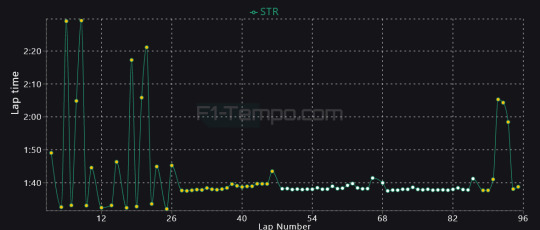
Lance's running today, thanks to f1 tempo
#lance stroll#aston martin f1#focused on long runs today#and the deg omg there is none basically!!!#i mean i'm a liberal arts girlie not a engineering girlie but i've picked up a few things#literally that middle stint? there's half a tenth between the first and last lap#i feel tyre deg has always been a strength of aston/rp but this feels like a positive#i'm very excited for the season
30 notes
·
View notes
Text
DEO: Department of Extra-normal Operations
This will be an essay that looks into the ethical problems of the DEO. For the purpose of this essay, I am not concerned about the showrunners reasons for their decisions for how the show presents the DEO. I care only about examining the worldbuilding and stories inherent within the world created. So let's dig into some philosophy and theory. Whee! [Minor spoilers]
To start, this department was first created within the Superman/Supergirl universe in order to analyze alien activities after Superman reveals himself on Earth. It's made in retaliation to the appearance of powerful aliens that those in power deem possible threats. Already, the DEO's beginnings are rooted not in true protection but in stopping and eradicating what those in power deem a threat. It's roots start with dubious ethics.
Let's examine it's history:
It was led by Hank Henshaw, who is vehemently anti-alien. Henshaw is also slated to have ties to Cadmus, which experimented on aliens and attempted several rather horrific and genocidal attacks on aliens. (Note that in Supergirl: Season 2, Kara and Lena thwart Cadmus' activities. Lena Luthor saves the day by modifying an alien killing virus to be harmless to all living creatures. Bits and pieces of the worldbuilding around Cadmus showed that the aliens experimented on came from DEO facilities.)
Henshaw dies when Jeremiah Danvers "kills" him when saving J'onn J'ozz, who then takes Henshaw's place until exposed. He recruits Alex sometime before his exposure (Season 1). After J'onn is exposed in Season 1, Lucy Lane takes control. Then after J'onn helps Supergirl defeat the murderous Kryptonian Non, J'onn received a presidential pardon and was reinstated as director. He kept Henshaw's guise for publicity sake.
The show makes it clear that J'onn choses to be the Director to change the DEO. Yet, what evidence is there that this actually happens?
So that's the basic history.
We have a clandestine agency that has unethical procedures that doesn't change under a new director.
The DEO picks up aliens and throws them in a cell to never be seen or heard from again. This would likely terrorize the alien neighborhoods. This is never truly address in any meaningful manner by the Superfriends or Kara.
In fact, if anything, the show positions the DEO as being Good if Alex, J'onn, or Lucy are in charge (Kara, ironically is not in charge of the DEO at any point). However, the DEO becomes Bad if Lex Luthor or Lauren Haley or the real Hank Henshaw are in charge.
This creates a rather large ethical problem.
First of all, the worldbuilding builds up the argument that certain people are good and certain people are bad. The person we see skirting between those two extremes, and living in a morally grey area the most, is Lena Luhor. For the purposes of this essay, I'll put a pin into Lena's characterization and focus only on the DEO.
Secondly, we are told again and again what Kara/Supergirl's ethics are: justice and truth. Yet when we examine Kara's actions within the context of her DEO Supergirl duties, we are confronted with the following:
She must hide her identity, even from her best friend Lena, and thus deceives regularly. Her reasons for not telling Lena are rooted in the pressure from those at the DEO to not tell Lena but also in Kara's intense fear of loss. However, Kara will demand truth from others despite her hypocritical actions. This doesn't seem to fit solidly in the "good" category.
Her "justice" is defeating criminals. Humans go to the police to eventually have a fair trial. However, aliens are not afforded that same right. Her justice for aliens becomes judge and jury. Since she professes to "not kill," she at least doesn't extend that to executioner. This again doesn't fit solidly in the "good" category.
Thus, by examining Kara/Supergirl's actions, we see a disconnect with what the show claims is "good:" truth and justice. Yet, there is no true justice for the aliens fought and captured; their rights are rescinded (if they had any at all).
This is why the show must tell us who is "good" and who is "bad," because people's actions do not fit the show's claims of what "goodness" is versus what "badness" is. Thus the worldbuilding ends up defining Kara's actions as always "good" even if those actions cause harm to those around her.
[Side note: This isn't to say that Kara is "bad." It is to say that the binary within the show's worldbuilding lacks nuance for the complexity within Kara's understanding of the world and how she acts within that understanding. This binary simply cannot allow for such a complex examination as there is no room for it.
Because of this binary, the show actually butchers Kara's character to make her past "not good" actions as somehow "right" and "good" in the end. We see this with how Kara's harmful actions toward Lena (the lying, duplicity, deception etc) is turned into "I did just one mistake" when it wasn't one mistake. It was years of harm, but because the show paints Kara as "good," Kara is not allowed growth.
This binary of good versus bad is already nonsensical in the worldbuilding since Lena Luthor's very existence throws this entire frame out the window. Her actions, always with the intention to do the least harm and try to improve the world, don't fit neatly into the binary. The story often punishes her for this. (She breaks the binary too much I suppose.)
Yet when other people's actions fail to fit neatly into the binary, the show whispers: "Hush, don't look or think, believe us when we say this person is good and this person is bad.']
To reiterate: It's okay to capture aliens and disappear them without any right to trial If the Superfriends are doing it. This good/bad definition collapses ethics into meaningless words since the activities and procedures of both the "good" people and "bad" people don't differ in terms of impact on alien communities. This lack of differentiation is why we must be told who is good. Otherwise, how would we know?
To dig a little deeper, in Season 4, when Kara is on the most wanted list, she learns very little about the true plight of aliens. During this time, the DEO becomes "bad" under the control of Lauren Haley. Lena Luthor and Alex Danvers, who are both working with the DEO still, also work against the DEO but only to clear Kara's name. So justice is done for Kara's sake but not for the other impacted alien communities.
Once Kara's reputation is restored and she's no longer deemed an "enemy of the state," Kara returns to working with the DEO, as it is now labeled as "good" again because Alex is back in charge.
Ironically, the only person in Kara's friendgroup that questions the DEO is Lena Luthor. (Who in Season 5 will have her 'villain arc' only to be redeemed to the good side again at the end of Season 5. She's the only character, who is labeled a villain at one point, that is allowed true redemption.)
We learn very little about what alien communities actually think about the DEO and about Supergirl in particular. The most we get is the Children of Liberty plot line of Season 4; however, this plot line doesn't ever give us a solid viewpoint from impacted alien communities. Instead, we are confronted with:
We are told what alien communities are like and how lacking in rights they are. Very little of this is shown directly outside of "criminal aliens." Or the brief glimpses within Manchester's arc. However, Manchester is viewed as 'in need of redemption' despite having very real grievances with the state of things. The show then tells us that Manchester is 'bad' and the 'good' J'onn and friends must stop him.
The second time we see alien daily lives is Nia's return to her hometown, which is attacked by supercharged humans. This blended town of aliens and humans serve as an outlier. Nia actually admits that the town is unique and not representative to most aliens' experiences. So again, we don't see a direct experience of alien life in National City or other major cities.
Aliens either have significant powers that humans can justifiably find scary or they are human-like with little to no powers. Both are treated the same for the sake of the Children of Liberty plot line, which serves as an immigrant allegory. @fazedlight and @sideguitars did excellent analysis on this and the problems of these allegories based on the worldbuilding and story itself. (Note: thank you to fazedlight for finding the post in question! Click here o read their analysis.)
This makes it easier for the show to pretend that the DEO is "good" when the Superfriends are in charge. Since we don't meet alien families harmed by the DEO's actions, we never truly get an alternate perspective.
Even Lena Luthor's critique of DEO is spat upon by the story, where her alien friends fail to truly counter her valid points. Instead, it's presented in the good/bad binary, which erases all nuance and ethical considerations.
Let's also consider the start of the Supergirl career. Kara is captured by the DEO 12 years after her initial appearance on Earth. However, prior to this moment, we had learned that Kara had nearly been taken by the government -- specifically Henshaw's control of the DEO. Jeremiah Danvers agrees to work for the government in exchange for Kara's freedom from being a government asset.
However, her saving Alex's flight puts her in the crosshairs of DEO, and eventually she is captured. Upon which she learns J'onn is in charge (not the original Henshaw), and J'onn's goals are revealed. He allows Kara to fight her first alien fights as Supergirl. Here we see that J'onn's methods have not actually changed anything about the DEO.
The alien fight results in that alien being captured. Supergirl/Kara never hears what happens to the alien she fought and captured. No thought is given to the rights of that alien or if a fair trial will be given. Instead, we are told the alien is a "criminal' as if that somehow justifies the brutal treatment.
After Alex reveals she's an agent with the DEO, Kara fully trusts the agency.
So Jeremiah gave up his life to make sure Kara wasn't being used by the government, only for Kara later on working for the DEO, which is part of the government. Thus Kara ends up used by the government after all. The irony here.
Kara's blind spot here is:
she's privileged. A white-passing, human-passing alien. It's easier for her to hide as a human and not be clocked as an alien. Also, she's white, so less likely to deal with the complications of racism. The most she has to deal with is sexism and the DEO's procedures. This means she doesn't experience the worst the DEO and the systems that uphold it dish out to aliens.
Kara hasn't really interacted with aliens outside her friend group. She's relatively sheltered since coming to Earth due to Kal placing her with the Danvers and having to hide herself. She has no real knowledge of how aliens survive on Earth. This means she has nothing in which to compare the DEO's claims.
She blindly trusts Alex when it comes to DEO.
We don't see Kara questioning what happens to aliens until Season 3 (if it happens in season 1, I apologize as that season is a bit hazy for me). Here Psi saves Kara's life during a perilous mission. Kara then asks about her accommodations and finds out she has no window in her cell. She then demands Psi be given a cell with a window.
However, notice who Kara takes with her on that Season 3 mission: LiveWire (human but due to an accident became Livewire, so she's not an alien but a meta-human) and Psi (who is labeled a meta-human). So the two incarcerated people that Kara chooses are meta-humans and not actual aliens.
So again, we never see Kara interact with aliens outside her friend group unless she is interrogating them. Once the DEO is done with interrogations and the case "closed," those aliens disappear into these windowless cells. Which, need I remind that solitary confinement is labeled as torture for a reason?
Yet that is where aliens that are dubbed "too dangerous" end up by those with power. No rights given; left trapped in solitary confinement with (likely) no windows to never see the light of day again. Of course, because we are told the "good" people do this, it is thus "okay," despite it not differing in methodology with what the "bad" people did.
2. DEO's procedures don't match law. This is especially true when alien amnesty is put into law.
DEO changes NOTHING about their procedures after alien amnesty is put into law. This means that although aliens now have a legal right to a trial, the DEO does not provide this for them. No captured alien is given this right.
This means the DEO doesn't operate within the law.
So if the DEO can disregard laws if they so desire, then what is to stop them from terrorizing any citizen regardless of whether that citizen or alien or human?
What exactly is the ethics of the DEO?
Is the ethics dependent on who is in charge? But if one compares the tenure of the directors: Henshaw, J'onn, Lucy, Alex, Lauren, and Lex -- we see no difference in how the DEO acts.
They all target aliens and give them no rights. The aliens vanish into the cells never to be seen again. This includes some meta-aliens.
Some will claim that while the Superfriends are in charge only criminal aliens are thrown into solitary cells with no hope of release.
But that begs the question: Why do the Superfriends get to be judge and jury and/or executioner? What makes their decisions good but Lauren Haley's or Lex's or the original Hank Henshaw's decisions bad?
Why do the Superfriends get to decide that criminals get no right to a fair trial? Why do they not interrogate what is causing the criminal behaviors in order to change the conditions to avoid aliens resorting to "criminality" as defined by them?
In the end, it does not matter why an alien or meta-human engages in what the state has deemed "criminal" behavior; the methods used in capture and the end result is the same regardless.
The families of captured aliens see the same results regardless of whether "good" people or "bad" people are in charge of the DEO.
While alien amnesty is in law, the DEO, who is under Superfriend control at the time, does not alter their procedures to give the aliens they capture any rights. We never see the aliens or meta-humans captured ever given a fair trial. Nor do we see any programs to reform "criminals" or give them any chance at parole or redemption.
The only method for dealing with aliens and meta-humans uses a carceral prison system that is based in solitary confinement torture. Even the interrogation procedures used have elements of torture to them. In fact, many of the "interrogation" procedures use leading questions to entrap and force a confession under duress. None of these methods are conducive toward reform or fixing a system that deprives those captured of all rights.
Alternate systems for dealing with criminals are never explored. We never see transformative or restorative justice utilized. Both systems would require extensive dialogue with the communities harmed by the "criminals," and if there is one thing the DEO fail at consistently is dialogue with the impacted communities. Instead, their approach is top down, where their ideas of what is right and best is pushed down upon the communities they claim to serve.
Part of this lies with the fact the Superfriends can't engage in dialogue as long as they adhere to the oppressive methodology and practices of the DEO. Reform has failed to alter the ethical violations within the DEO. Alex Vidale wrote an excellent book called The End of Policing, which digs into the attempted reforms for police and how they have consistently failed. Vidale writes:
“At root, they [reformers] fail to appreciate that the basic nature of the law and the police, since its earliest origins, is to be a tool for managing inequality and maintaining the status quo. Police reforms that fail to directly address this reality are doomed to reproduce it.”
The DEO at its root was created to manage the inequality inherent between human rights and the lack of any rights for aliens. It was also created to control aliens and maintain a human status quo. The Superfriends attempt at reform fails to address this reality, and thus were doomed to repeat it.
Vidale continues:
“Police argue that residents in high-crime communities often demand police action. What is left out is that these communities also ask for better schools, parks, libraries, and jobs, but these services are rarely provided.”
Services to better the conditions of so-called "high-crime" communities are not shown to be rendered in the Supergirl world, while the Superfriends are in control of the DEO. It is not more policing that is needed, but more services which do not get provided for most of the show's story and worldbuilding. Thus, the communities that struggle with survival, who often must resort to "illegal" or "criminal" ways end up with only punitive measures that continue the cycle.
It's only in Season 6 when the Superfriends are no longer with the DEO that we start to see them engage in dialogue with the community in general (Kelly's arcs in particular touch on this for the lower income area that she tries to help, which is shown to be a mixture of nonwhite humans and some aliens).
If J'onn and others truly are seeking to reform the DEO, then that requires them to be in dialogue with the affected communities and to put forth new procedures that provide rights to those impacted. This is never done.
3. The DEO suffers no consequences for its actions.
The "Bad things" that happen under the "Bad" directors -- original Henshaw, Lauren Haley, Lex -- aren't ever addressed. Nothing really changes; instead the "Good" guys get back in control and things continue.
Was any reparations made for those harmed by the bad actors? Are the families impacted ever given compensation? We see some aliens rescued from Cadmus in Season 2 and Lex's Power Plant in Season 4, but what of the families of those murdered by Lex and Henshaw? The show fails to address this.
Instead, we are told that the "good" people are now in charge again and only "criminals" are being taken and incarcerated with no rights.
The concept of "criminality" depends entirely on who is in a position of power to dictate what constitutes "criminal" acts. One of the biggest problems with "criminality" as a concept is that it fails to interrogate the why these behaviors happen. What led to the "criminal act?" Are the people engaging in the act just "bad" people?
Often when basic needs are not being met, people may engage in acts of desperation to meet those needs. These actions may fall under what that society deems as "criminal." However, if the people's needs were met, then they wouldn't need to engage in desperate acts to meet their needs.
Another reason for "criminal" behavior stems from people who lack rights in a society. The oppressed will often fight against their oppressors using a mixture of methods (sometimes nonviolent, sometimes violent) in order to win their rights and transform society for the better. Until they win that fight, their actions are labeled as "criminal" by those in power.
Some rarer individuals may engage in acts of harm because they enjoy it such as Lex. However, this is actually very rare. Property crime and burglary is far, far more common. Yet, even those engaging in horrific violent crimes are still afforded a fair trial. Something aliens in the Supergirl universe are never given.
There's quite a few scenes where the aliens fought by Supergirl are engaging in robberies/burglaries or other property crimes. Those that seek to violently mass murder is actually rarer, and often the big villain of the season. At no point does anyone in the show reckon with the reasons someone may choose to engage in "criminal" behavior. Instead, all "criminals" are painted as "bad" regardless.
J'onn professes to be "reforming" the DEO to stop its reign of terror among alien communities. Yet, the most crucial components in changing an oppressive system? We don't really see him utilize them until Season 4, but by then the DEO is in the hands of Alex, who continues the procedures put into place by J'onn,
Paulo Freire writes in Pedagogy of the Oppressed concerning the "radical" as in the person seeking to end an oppressive system:
"The radical, committed to [human] liberation, does not become the prisoner of a 'circle of certainty' within which reality is also imprisoned. On the contrary, the more radical the person is, the more fully he or she enters into reality so that, knowing it better, he or she can transform it. This individual is not afraid to confront, to listen, to see the world unveiled. This person is not afraid to meet the people or to enter into a dialogue with them."
J'onn recognizes that the DEO's methods are wrong and unethical. When he takes over and poses as Henshaw, he wishes to transform the system. Except, this is where he fails, because he justifies his changes by claiming that now the DEO only locks away forever criminal aliens.
No thought is given as to why these aliens are making these decisions. What pushed them to rob a store? What pushed them to attack? Did they feel like they had no other choice? Was there no opportunities other than to rob for what they needed? Or to fight against a system that they deem is harming them and their communities?
These questions are not analyzed at all by J'onn or the Superfriends. They do not listen to those most impacted by the DEO. The only time we see J'onn seem to listen is when he is trying to work with Manchester in Season 4, but that results in Manchester being presented as bad in the end, while J'onn is shown to be good. Where he tried to redeem Manchester.
Yet Manchester had valid points about the treatment of aliens. His methodology in fighting back against what he saw as oppressive system is problematic, but he listens far more than Kara and the Superfriends to those being harmed by the systems that created the DEO.
So J'onn and the other Superfriends are failing to engage in dialogue with those harmed by the DEO. They fail to unveil what is truly horrifying with the DEO: incarcerating aliens in solitary confinement with no fair trial and no hope of ever seeing the light of day again.
The justification that because they are "criminals" this is somehow okay erases all the contributing factors that may make up the circumstances that lead to the "criminal" behavior. Nothing is truly done to remedy the situations that may drive someone to what the state labels as "criminal" behavior.
It also unveils a horrible truth. Any alien (or meta-human or even human) can be marked an "enemy of the state" and thus a "criminal," where all rights they had prior be rescinded. We see this happen to Supergirl in Season 4. The only reason she isn't locked away in a cell with no windows is because Alex and Lena don't allow it. Unlike most aliens the DEO fights to find and capture, Kara has people fighting for her.
But what about every other alien? Who is actually fighting for them?
J'onn's attempt to reform the DEO falls into the biggest trap for all radical liberators: it is all too easy to become complicit with the system at be and justify this than it is to actually change it from within.
As Paulo Freire puts so succinctly:
“Oppression is domesticating. The gravest obstacle to the achievement of liberation is that oppressive reality absorbs those within it, and thereby acts to submerge human beings' consciousness.”
Thus the DEO fails to be reformed. It's reign of terror in alien communities is not truly diminished. Nor does those fighting to "reform" the DEO engage in any dialogue with those communities to determine their needs or ways to improve conditions to decrease the need to resort to "criminal" activities.
In the end, the DEO stays an oppressive, clandestine agency that has no transparency, answers to apparently no one, takes away the rights of those they catch, and disregards laws as they please.
What the Superfriends have failed to learn and understand is that oppression cannot be defeated by reforming the system that causes the oppression. In other words, liberation cannot be achieved be reform alone.
This is why the destruction of the DEO in Season 6 is perhaps the best result at least within the rules of the Supergirl world. The Superfriends could not reform it from the inside, and by trying to do so, they ended up complicit to a harmful system. As long as they were tied to the DEO, the Superfriends would never be able to live out justice and uplift the rights of aliens and humans alike.
ADDENDUM: However, the Superfriends decision to go full vigilante is a whole other can of worms. They do attempt to be transparent in their actions for the communities they serve, but is there a way for people to hold them accountable? That isn't fully addressed. However, that would require a full essay, and this essay is only about the DEO.
#I know it's CW who failed to ever think about these topics#I wanted to get philosophical about this#if I had more energy I'd give the good/bad problem further depth as it deserves more examination than I gave#The simplification of ethics to good/bad based on who the show labels as 'good' and 'bad' is a bastardization of ethics#I love me some paulo freire#trying to reform a corrupt system from within runs the danger of becoming part of that system#Liberation cannot be achieved by reform alone#I wrote this mostly as an exercise in examining worldbuilding within a liberatory framework#I'm solidly in the DEO cannot be redeemed or reformed camp and needs to be completely taken down#A new method for dealing with dangerous aliens that respect their rights is needed#Restorative or transformative justice is my jam
26 notes
·
View notes
Text
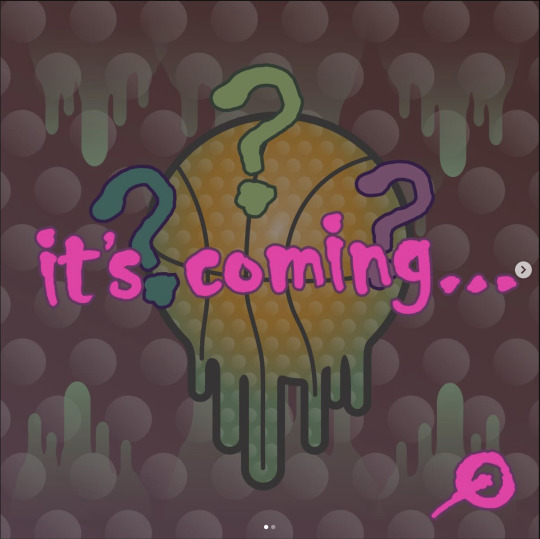

we’re doing things a little differently for our 2nd annual MARCH MADNESS: QUEER BOOKS EDITION bracket this year — we’re letting YOU have a say in the nominations! last year’s underdog pick HUNGER PANGS: TRUE LOVE BITES by @thebibliosphere wrecked the competition in every. single. round. will it be another year of the underdog, or will a tried and true queer classic run away with the title?
choose your fave gay books from our Libby collection and leave the title in a comment on our instagram! nominations run until the end of february. and in march … THE MADNESS BEGINS.
p.s. nominations & voting on instagram, if you just make a nomination here we can’t guarantee it will make it in
p.p.s. book eligibility = it’s in our collection! however, titles from last year’s bracket are not eligible for this year
#we’re running the brackets over on insta this year#the bird app is.. uh gasping for breath as it were#queer liberation library#qll#march madness#book bracket
102 notes
·
View notes